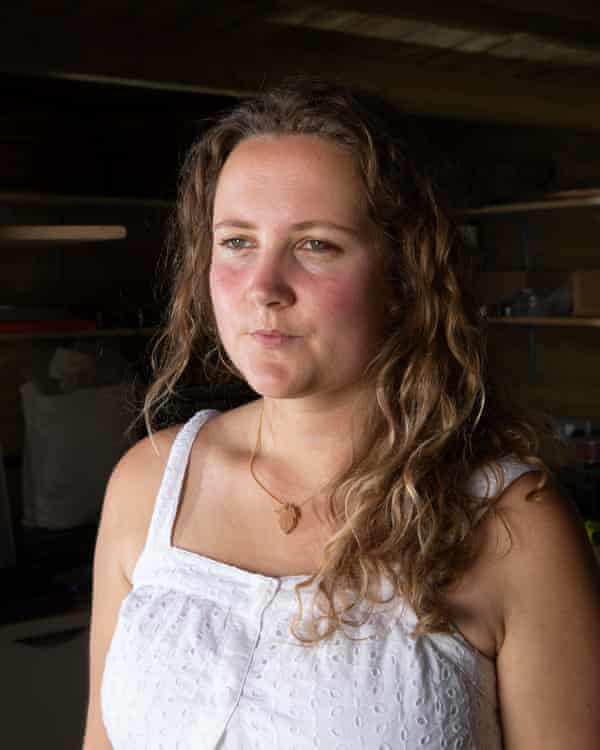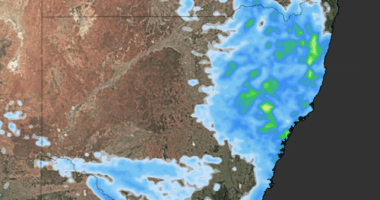Share this @internewscast.com
What does it mean to be a modern mother? This is a question that has preoccupied many authors in recent years: three of the six shortlisted novels for the 2020 Booker prize focused on mother-child relationships, and fiction writers, especially female ones, are finding imaginative ways to express the notion of maternity.
In Rachel Yoder’s 2021 novel Nightbitch, “the mother”, as she is known, lives a life of drudgery and boredom, devoid of the art that once gave her life purpose. The other “mommies” she meets appear to be in a trance, indoctrinated into an institution whose language and mores feel trivial, as conversations about leggings and essential oils jar with the mother’s inner rage and confusion. “I am now a person I never imagined I would be … I am stuck inside a prison of my own creation,” she wants to say to a woman in the supermarket who asks how she is enjoying being a stay-at-home mother. “I feel as though societal norms, gendered expectations, and the infuriating bluntness of biology have forced me to become this person.” Instead, she opens her mouth and says: “I love being a mom.”
To become a mother is to transform, and in Nightbitch that transformation becomes literal when the sleep-deprived mother starts to grow fur. A lump is discovered near her tailbone, she grows extra nipples and her teeth seem to lengthen and sharpen. She is becoming a dog, and begins to roam the neighbourhood at night, searching for flesh. In so doing she discovers a “fresh power”, a new way to relate to her son – and an understanding of motherhood’s animalistic power.
Nightbitch is not the only recent novel that explores the subject from a creaturely angle. In fact, the monstrous feminine seems to have returned with a vengeance. Some of these novels borrow from old stories, harking back to the metamorphoses of Greek myth – explicitly so in the case of Megan Hunter’s The Harpy. The novel asks: was Medusa truly a monster, or did the sexual violence wrought against her by Poseidon make her that way?
There’s a lurking horror in such novels, a masculine fear of female rage and power. As Hannah Williams wrote on the monstrous feminine: “What if the woman who lies next to you at night, folds your laundry, cooks your meals, is merely hiding her claws and scales and razor-teeth and licking her lips with her forked tongue, counting the wrongs you committed against her – against all women – biding her time.”
In The Harpy, female fury is again transformative. “There is a trail of anger flowing through my bloodline, from my great-grandmother, to my mother, to me,” its narrator, Lucy, tells us. When a husband betrays a wife, the wife agrees to stay with him only on the condition that she may hurt him three times. Lucy, the wife, has given up so much. She dwells in “parentworld – the place where nothing happens”, makes polite chitchat with the other mothers, many of whom have also sidelined their careers to a “forever part-time, lower-waged track” but under the surface she is becoming a harpy who “can sleep on the wing, her own body a refuge, her nails curled, ready to strike”.
There is an uncanniness to the notion of the benign maternal archetype concealing something far more primal and even predatory. In Chouette, Claire Oshetsky’s novel about a woman who gives birth to a baby owl, the mother spends her nights hunting vermin, the body horror of pregnancy transposed on to a more sinister and arcane process of metamorphosis as the protagonist finds herself expecting a child that will horrify everyone but her and miss all her developmental milestones (Chouette is a parable about raising “non-conforming” children).

Feminist horror has undergone a resurgence in recent years that has almost directly coincided with the election of Donald Trump and the rise of the #MeToo movement. Just as the short stories of Julia Armfield and Daisy Johnson use metamorphosis as a device to explore adolescent transformation under patriarchy, Yoder, Oshetsky and Hunter turn instead to explore matrescence – the identity transition and process of becoming a mother – and how it collides with societal conceptions of motherhood as an institution. All these novels take place in the “real world” but it collides violently with the brutal, primal realities of mothering.
Williams posits that perhaps “we retreat to fantasy when we want escape from that which we cannot change”. I agree, but I also think that “the feminine fantastic” as I would call it (many of these literary examples meet the critic Tzvetan Todorov’s definition of “fantastic literature”) serves to bridge the gap between instinct and institution. The institution of motherhood, as Adrienne Rich argued, is created by men. For Yoder’s Nightbitch, that institution is “neutered and sanitised”, standing in stark contrast to the “brutality and power and darkness” of the experience and the animalistic love that results from it. There is a sense that this brutal reality at the heart of the “republic of Motherhood” remains something feral and primeval that is yet to be fully explored in language. Almost 50 years ago, Hélène Cixous wrote in The Laugh of the Medusa of a need for an écriture feminine that would rewrite the unspoken truths of the female body, it’s “otherness.”
In all these works – as well as Camilla Grudova’s The Mouse Queen, from her collection The Doll’s Alphabet, which sees a woman devour her children – the female characters have been abandoned, literally or tacitly, by their male partners. These men live in a different world, the world of work, and in this sense the strangeness of the mother’s new, closed-off reality finds a natural home in fantasy. How strange, the newer novels attest, that so little in the outside world has really changed for women at all.
But what if motherhood has been denied you? In Jackie Polzin’s Brood, a grieving woman battles to take care of her chickens in the harshness of a Minnesota winter. It’s a narrative with no supernatural elements, a quietly moving story of a woman’s determination to keep her animals alive, but in its way it is a primal and as desperate as the others. Life, death; it’s all here in its savage, bloody reality. All you have to do is look under the leggings.
Source: This post first appeared on The Guardian















